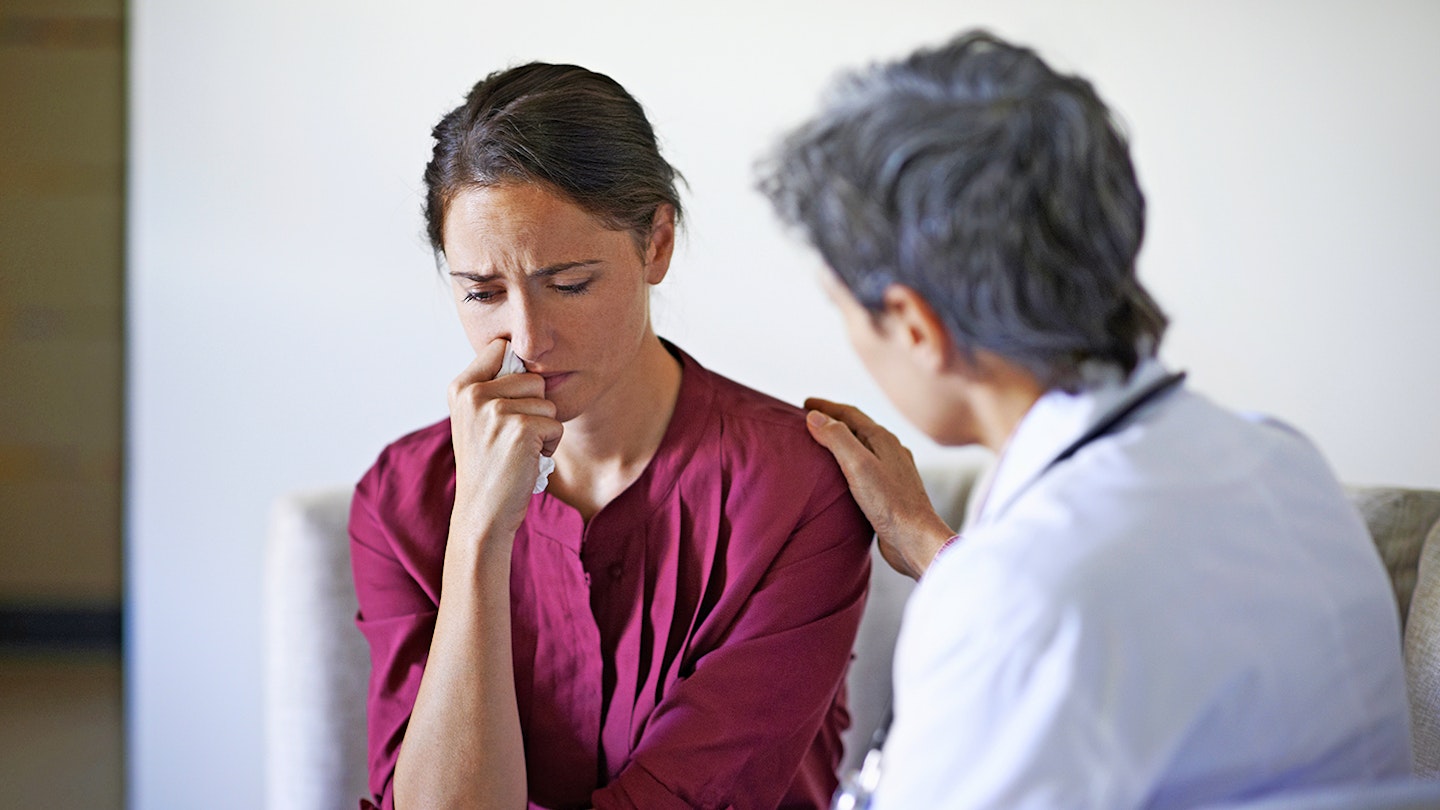Being diagnosed with a health condition can be incredibly difficult, not only physically, but also emotionally. This can be especially true if it’s come out of the blue, such as if you’ve suddenly suffered a stroke or a heart attack.
Research suggests that nine out of 10 people report worsened emotional or mental health following any unsettling diagnosis.
Anna Crofton, an advanced nurse practitioner in neuro-oncology for The Walton Centre NHS Foundation Trust, says: ‘The emotional impact of a difficult diagnosis is huge. It’s normal to experience great shock and this sense of Is this really happening to me?
‘The most important thing to remember is that you’re not alone. There’s help and support available for both you and your loved ones, and an array of different coping strategies that can help.’
Here Anna suggests some techniques you might try…
Let yourself feel how you feel
Putting on a brave face can feel emotionally draining and stressful. It’s OK to feel sad, scared or angry. It’s normal to think: Why me? Some people even feel a sense of guilt about the impact the diagnosis will have on their family.
Allow yourself a good cry. You might find exercising or getting your feelings down on paper acts as a helpful release too.
It’s important to allow yourself to feel how you really do.
Take it slowly
Trying to process a lot of information following a diagnosis can be overwhelming. Instead, try to digest information in short, concise chunks at first and have someone take notes for you during appointments.
Make sure you have a phone number or email address for a key worker or nurse specialist who you can contact if you have any questions and never be afraid to ask for information to be repeated.
Tell your loved ones what you need
There’s no one size fits all when it comes to coping with a diagnosis. Some people will find that talking helps, while others may prefer to keep busy.
By being clear about your needs, your loved ones can offer you the emotional support that’s right for you. If you struggle to share your deepest fears with your family, confide in friends, colleagues or an online support group.

Ask your medical professional for what you need
Every situation is unique. Ask yourself: What exactly am I personally struggling with right now? For example, in addition to worrying about your illness, you might also be worried about your finances or your family’s emotional wellbeing.
There are lots of brilliant services out there and if your medical team knows what you need, they’ll be better placed to recommend the right support for you.
Keep a routine
It might be helpful to stick to some of the routines that you had before your diagnosis to help provide a sense of security and comfort at an unsettling time.
Where possible, and if right for you, keep doing activities that you enjoyed before your diagnosis. These will help you stay engaged in your life and also act as an important reminder that this illness does not define you.
Research the right way
Often when we’re doing internet searches, we’re looking for hope and positivity, but if we’re not careful we can come away feeling upset, confused and overwhelmed.
That said, for some people doing research can help them to feel more in control — just make sure that the sites offer the latest factual advice. The NHS website and condition-specific charity websites are really good sources.
Find the coping techniques that help you
If your mind’s constantly racing, try experimenting with exercises to help calm you down. For example, some people find that box breathing — where you breathe in for four seconds, hold for four, and then exhale for four — or meditation particularly help them when they’re feeling overwhelmed.
Remember you’re not alone
A diagnosis can knock your confidence but remember you’re not alone. Consider joining a condition-specific support group or speaking to a counsellor. Remember, we cope better together. Just having a conversation with someone else really can make a big difference.
Edited by Stephanie May
